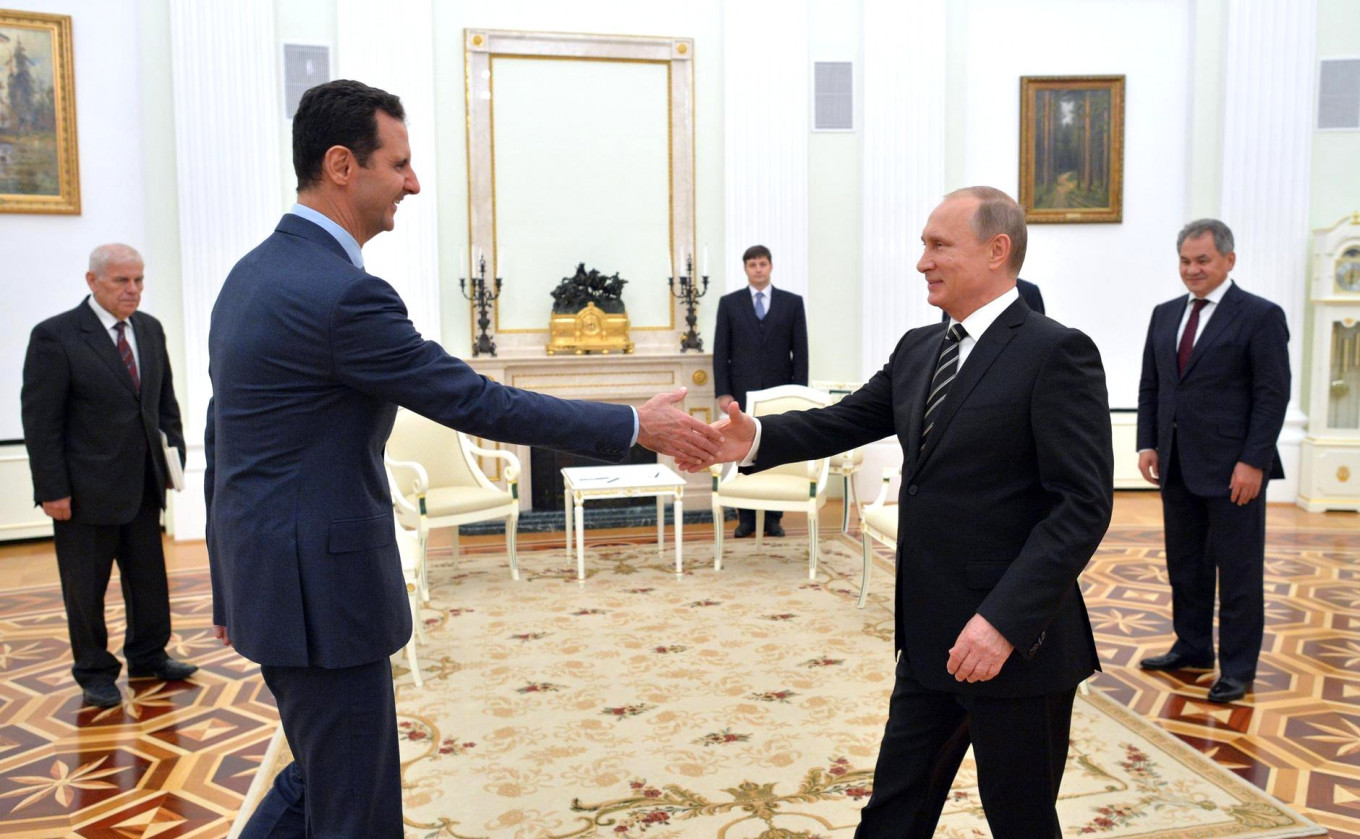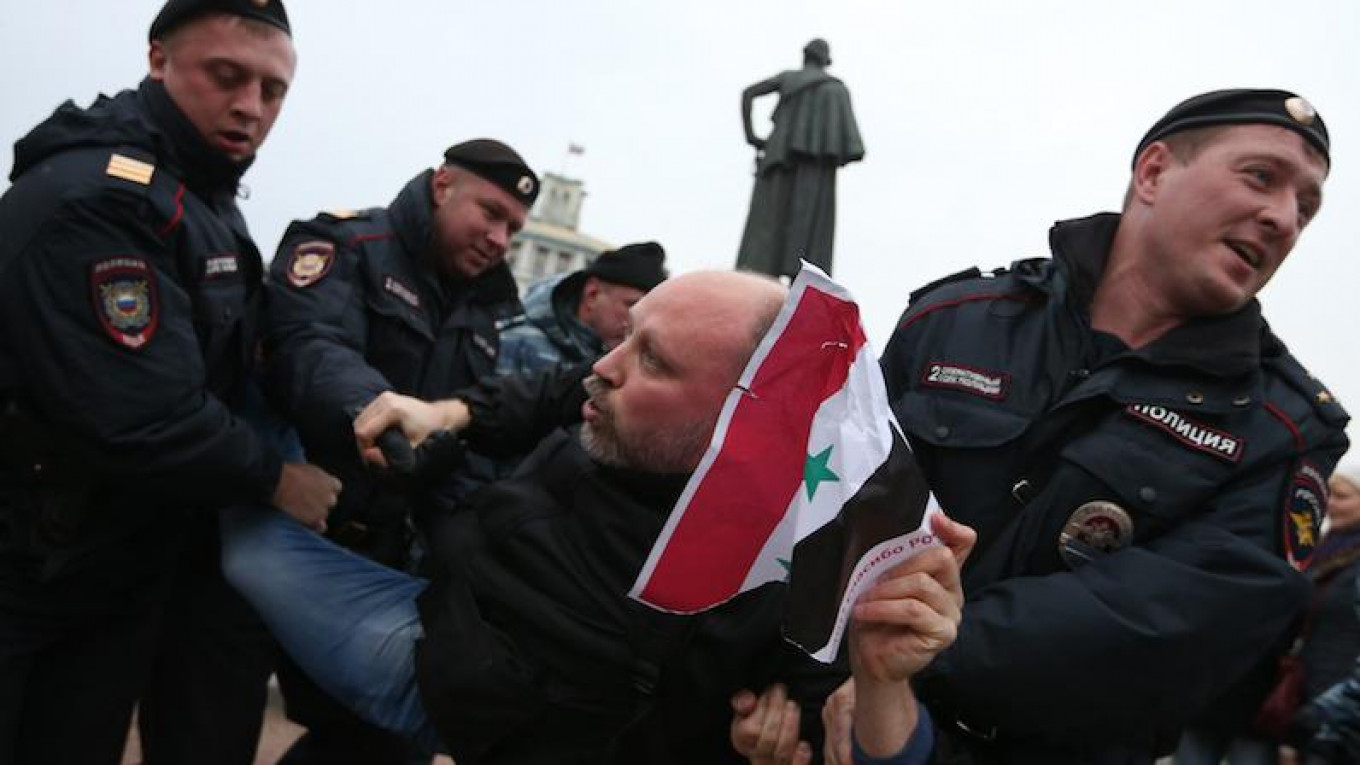Despite Russia's lack of independent news coverage on Syria and the heavily controlled nature of television, a new poll by the Levada Center suggests that the public is beginning to worry about Moscow's conflict with the West in Aleppo spinning out of control.
“On the whole, most people are still positive about the Kremlin's role,” says sociologist Aleksey Grazhdankin, Levada's deputy director, who has been studying Russians' attitudes since the beginning of Moscow's military campaign. But, he says, there have been some significant changes in the way Russians perceive their country's foreign policy.
Indeed, support for Russian airstrikes in Syria is still high: 52 percent of respondents said they support the attacks. A year ago, this figure was roughly the same, at 55 percent. But the number of those who fully support the bombings fell a significant 5 percent: from 21 percent to 16 percent. Increasingly, Russians also can't make up their minds about Moscow's campaign in Syria, with undecided respondents rising from 19 percent last year to 23 percent in the first week of October 2016.
Entering the Syrian conflict more than a year ago, Vladimir Putin set out to restore Russia's presence on the global scene, following international isolation that resulted from Moscow's annexation of Crimea and military intervention in eastern Ukraine.
Russians sympathized with these aims, and the public welcomed the country's return to global affairs. “Besides, Russia fighting in a foreign country adds to the self-esteem of some Russians,” argues political analyst Mikhail Troitskiy.
A year ago, 40 percent of the country said it expected Russian airstrikes would improve Western attitudes toward Russia. Today, just 30 percent of respondents — a clear minority — embrace this view. A year ago, 49 percent of Russians said that Russia and the West would be able to find common ground in Syria. That figure has dropped to 35 percent today.

In other words, what was initially thought to be a cause for cooperation has become yet another battlefield in Russia's expanding confrontation with the West. According to Levada's new survey, Russians have not welcomed this development.
“Some Russians saw a certain contradiction,” agrees political analyst Mikhail Troitskiy. Putin declared an exit from Syria in March, but Russian never actually withdrew, and has instead continued to support Assad's government militarily.
Many in Russia say they have struggled to understand Moscow's support for Assad. “For many Russians, it is difficult to figure out what interests Russia has in supporting a faraway land and why Russia should risk confrontation with the West for [Assad],” said Troitskiy.
Almost half of the country (48 percent) says it fears the Syrian conflict could evolve into a Third World War. A few months ago, in July, just 29 percent of Russians expressed this fear. While Grazhdankin notes that this figure should not be exaggerated, he says it's significant that more and more Russians are worried about a global catastrophe. “It’s a fear of confrontation,” he says.
Generally, Russians welcome their government's efforts against terrorism. “Russians, unlike some nations, prefer a tough approach — whether in crime or terrorism,” says Grazhdankin. Also, during last 15 years, anti-American and anti-Western attitudes have become embedded in Russian society, making perceptions of global confrontation not altogether shocking.
But still, as the Levada Center's new poll shows, Russians' comfort level with escalated tensions isn't limitless.
A Message from The Moscow Times:
Dear readers,
We are facing unprecedented challenges. Russia's Prosecutor General's Office has designated The Moscow Times as an "undesirable" organization, criminalizing our work and putting our staff at risk of prosecution. This follows our earlier unjust labeling as a "foreign agent."
These actions are direct attempts to silence independent journalism in Russia. The authorities claim our work "discredits the decisions of the Russian leadership." We see things differently: we strive to provide accurate, unbiased reporting on Russia.
We, the journalists of The Moscow Times, refuse to be silenced. But to continue our work, we need your help.
Your support, no matter how small, makes a world of difference. If you can, please support us monthly starting from just $2. It's quick to set up, and every contribution makes a significant impact.
By supporting The Moscow Times, you're defending open, independent journalism in the face of repression. Thank you for standing with us.
Remind me later.






